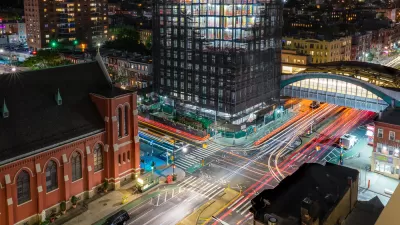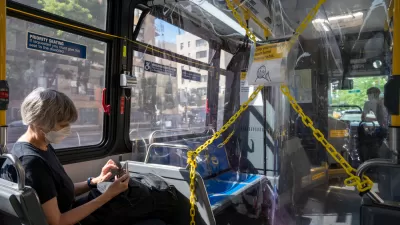It could become a lot harder to develop a hotel in New York City, even in areas where hotel developments are zoned as-of-right and even after the pandemic has ravaged the industry.

"The [New York] Department of City Planning on Monday released its long-awaited proposal for requiring special permits for new hotels and expansions throughout the city," reports Kathryn Brenzel.
The permitting system would be designed to curb projects that cause 'conflicts or create nuisances,' according to Brenzel. The permitting system "would apply to all zoning districts where hotel construction is permitted as-of-right, and would take the place of special permits already required in Midtown East, the Garment District and light manufacturing zones. No new hotels have been built in light manufacturing zones since 2018, when the city started requiring permits in those areas."
Included in the draft scope of work released by the Department of City Planning are some brutal facts about the state of the hotel industry in New York during the pandemic. "The city estimates that between January and September 2020, 135 hotels and 39,244 rooms have closed, representing declines of 20 and 31 percent, respectively," reports Brenzel. Despite the industry headwinds, 30,331 hotel rooms were "either under construction or in the late planning stages as of October."
The article mentions opposition to the proposed permitting system from Real Estate Board of New York President Jim Whelan, but doesn't mention political support for the new system outside of the Mayor's Office. As noted by Brenzel, in November the de Blasio administration abandoned plans to implement special permits for hotel construction in Manhattan south of Union Square to focus on the citywide regulations. A separate article by Mark Hallum tells that story.
FULL STORY: NYC moves forward with plan for special hotel permits

Planetizen Federal Action Tracker
A weekly monitor of how Trump’s orders and actions are impacting planners and planning in America.

Maui's Vacation Rental Debate Turns Ugly
Verbal attacks, misinformation campaigns and fistfights plague a high-stakes debate to convert thousands of vacation rentals into long-term housing.

San Francisco Suspends Traffic Calming Amidst Record Deaths
Citing “a challenging fiscal landscape,” the city will cease the program on the heels of 42 traffic deaths, including 24 pedestrians.

Amtrak Rolls Out New Orleans to Alabama “Mardi Gras” Train
The new service will operate morning and evening departures between Mobile and New Orleans.

The Subversive Car-Free Guide to Trump's Great American Road Trip
Car-free ways to access Chicagoland’s best tourist attractions.

San Antonio and Austin are Fusing Into one Massive Megaregion
The region spanning the two central Texas cities is growing fast, posing challenges for local infrastructure and water supplies.
Urban Design for Planners 1: Software Tools
This six-course series explores essential urban design concepts using open source software and equips planners with the tools they need to participate fully in the urban design process.
Planning for Universal Design
Learn the tools for implementing Universal Design in planning regulations.
Heyer Gruel & Associates PA
JM Goldson LLC
Custer County Colorado
City of Camden Redevelopment Agency
City of Astoria
Transportation Research & Education Center (TREC) at Portland State University
Jefferson Parish Government
Camden Redevelopment Agency
City of Claremont





























